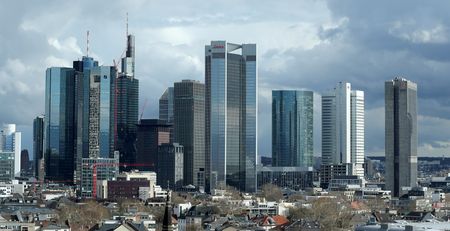BERLIN (Reuters) – German companies expect only a mild recession next year despite headwinds from the energy crisis, raw material shortages and a tepid global economy, a survey of major associations published by Reuters on Tuesday showed.
“The last quarter of 2022 and the start of 2023 are likely to be accompanied by a decline in economic activity,” said Siegfried Russwurm, president of the Federation of German Industries (BDI). “However, we expect only a slight slump.”
There have been growing signs that the German economy could stave off the worst of an economic downturn triggered by a plunge in energy supply from Russia after the Ukraine invasion.
Inflation slowed slightly to 11.3% in November from a high of 11.6% the month prior as energy prices eased. The German government has predicted the economy will grow by 1.4% this year and contract by 0.4% next year.
Russwurm warned that growth would remain subdued until 2024 as weak demand around the world hits Germany’s export-dependent economy.
The Association of German Chambers of Industry and Commerce (DIHK) said there were many indications that supply chain disruptions were gradually easing.
“Freight rates for container prices are approaching long-term normal values again, and the congestion outside international ports is slowly easing,” said DIHK President Peter Adrian.
“If the announced relaxations of China’s zero-COVID policy are implemented, it would also be a positive signal for global supply chains,” he added.
However, the DIHK warned that soaring energy prices and easing consumer sentiment were still clouding the outlook for 2023.
The ZDH association of craftsmen echoed the DIHK, saying noticeably fewer orders were coming in for next year.
“The order backlog will still carry us until the beginning of spring, but there are many question marks for the time after that,” ZDH Secretary General Holger Schwannecke said.
The German Wholesale, Foreign Trade and Services Association (BGA) said the situation was still robust in many sectors of the economy. “But we are carrying over negative expectations from month to month, the depth and breadth of which have not yet been realised,” said BGA President Dirk Jandura.
He said he was confident that companies would come onto a more encouraging path again during the course of the spring.
(This story has been refiled to fix hyperlinks)
(Reporting by Rene Wagner; Writing by Maria Sheahan; Editing by Miranda Murray, Kirsten Donovan)

